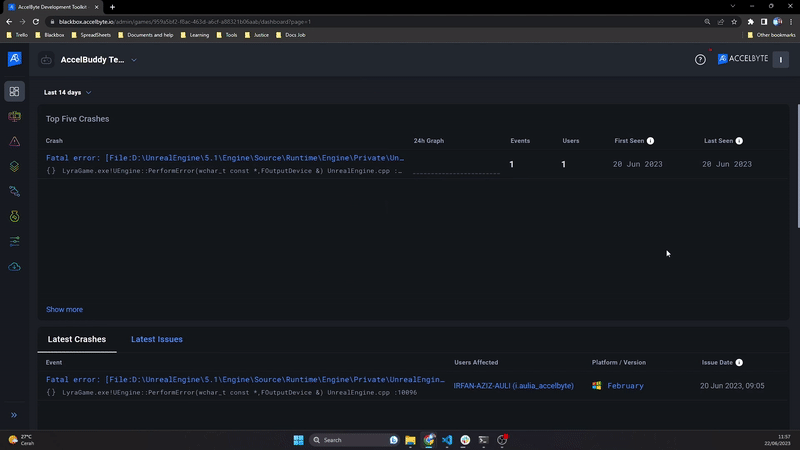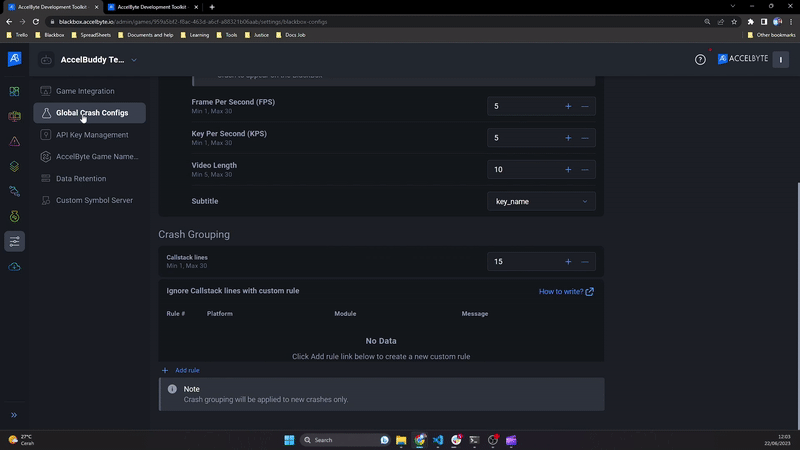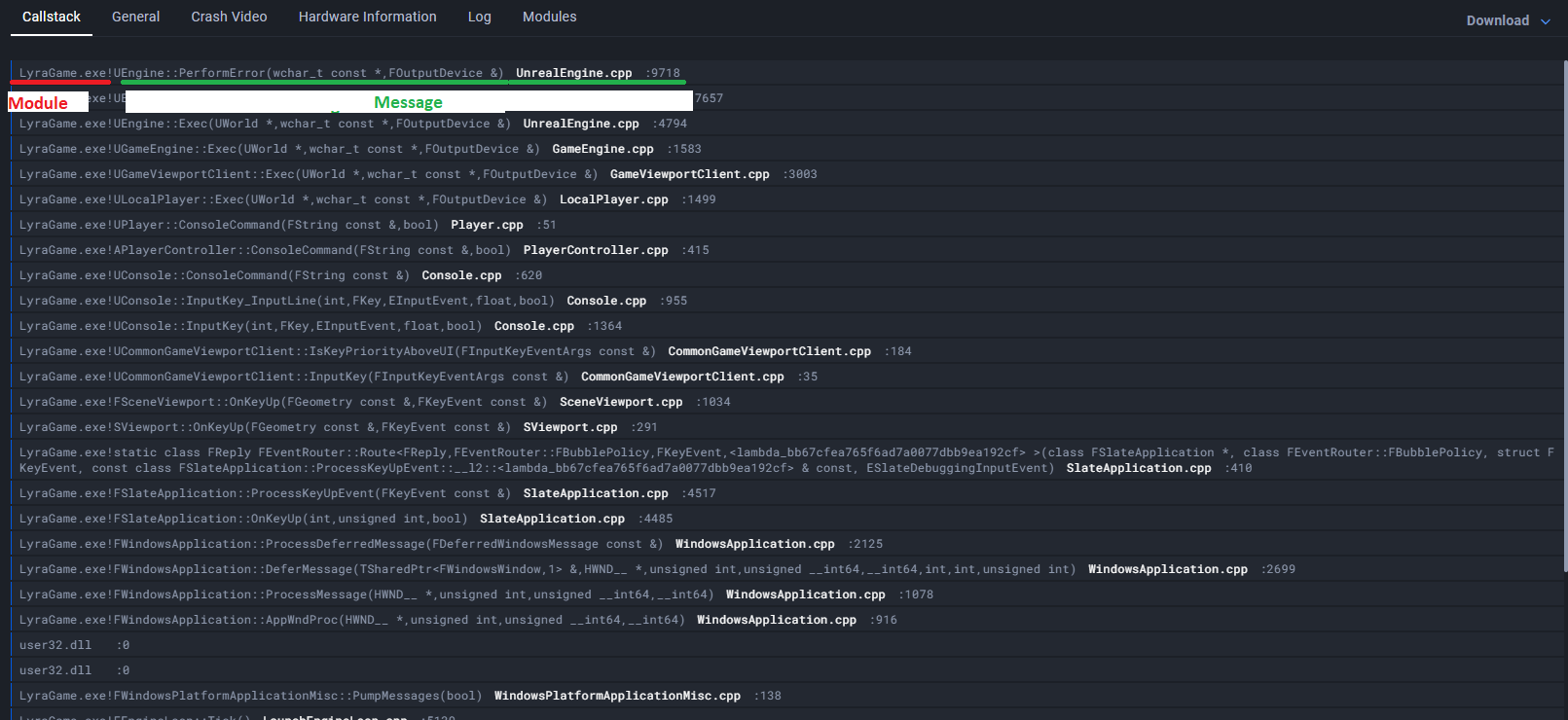カスタムクラッシュグループ化
注釈:本資料はAI技術を用いて翻訳されています。
概要
AccelByte Development Toolkit(ADT)のカスタムクラッシュグループ化により、複数のクラッシュイベントを1つのクラッシュイシューにグループ化することで、クラッシュレコードを管理できます。この機能を使用すると、同一のコールスタック行を持つクラッシュイベントがグループ化されます。これにより、開発者は同じ根本原因を持つバグを修正できます。
ADTのカスタムクラッシュグループ化は次のことに役立ちます:
- 同一のコールスタック行の範囲を最小1から最大30まで設定します。
- コールスタックの特定の行を無視し、コールスタックリストから省略します。
クラッシュグループ化は新しいクラッシュにのみ適用されます。
コールスタック行の範囲を設定する
コールスタック行の範囲を設定するには、以下の手順に従ってください:
- ADT Webにログインします。
- サイドバーからGame Settingsメニューをクリックします。
- Global Crash Configs設定を開き、Crash Groupingセクションまでスクロールします。
- **+アイコンをクリックして増やし、-**をクリックして一致させる行数を減らします。
- Save Changesボタンをクリックして変更を保存します。
- 確認ポップアップでConfirmボタンをクリックします。

コールスタック行を無視する
カスタムルールを設定すると、システムはコールスタックを無視し、Call stackタブに表示されなくなります。
無視ルールを設定するには、次の手順に従います:
- ADT Webにログインします。
- サイドバーからGame Settingsメニューをクリックします。
- Global Crash Configs設定を開き、Crash Groupingセクションまでスクロールします。
- Add Ruleボタンをクリックします。
- Platform列をクリックします。
- ドロップダウンから利用可能なプラットフォームを選択します。
- ゲームモジュールのコード(例:
LyraGame)でモジュールを入力します。 - 無視するメッセージ(例:
UEngine::PerformError())を入力します。 - Save Changesボタンをクリックします。
- 確認ポップアップでConfirmをクリックします。

無視ルールを記述する
コールスタックは解析され、クラッシュに含まれます。コールスタックには、関数、場所、行番号が含まれます。コールスタックの無視ルールは3つのコンポーネントで構成されます:
-
Platform:ビルドのプラットフォーム。ゲームプラットフォームに応じて選択します。ドロップダウンには、ビルドのアップロードされたプラットフォームのみが表示されます。
-
Module:コードアドレスを含むゲームの実行可能モジュール。
-
Message:クラッシュ情報としてモジュールから送信される例外メッセージ。

関数文字列にはmodule!messageが含まれ、感嘆符(!)で区切られています。感嘆符の前の文字列がモジュールです。「!」文字がない場合、文字列全体がモジュールです。
コードはコンポーネントを次のように読み取ります:
"Platform: windows" AND "Module: LyraGame" AND "Message: UEngine::PerformError*".
これは、ルールの正確な値のみに一致することを意味します。モジュールまたはメッセージを誤って入力した場合、コールスタック行は無視されません。
そのため、モジュールとメッセージを入力するための正規表現機能があります。ワイルドカード(*と?)、文字範囲マッチ[a-f]、またはその他の正規表現関数を使用できます。
"Platform: windows" AND "Module: ?yra*" AND "Message: [AIUEO]Engine::Perform*".
FAQ
Q: コールスタック行の値を30に設定するとどうなりますか?
A: システムは、まったく同じ30行のコールスタックを持つクラッシュのみをグループ化します。15行目だけが異なる場合でも、別のクラッシュイシューにグループ化されます。
Q: メッセージ値を空のままにするとどうなりますか?
A: システムは、モジュールをメイン値として持つコールスタック行のみを検索します。
"Platform: windows" AND "Module: LyraGame"
無視されるコールスタックは、追加のメッセージなしでLyraGame!になります。